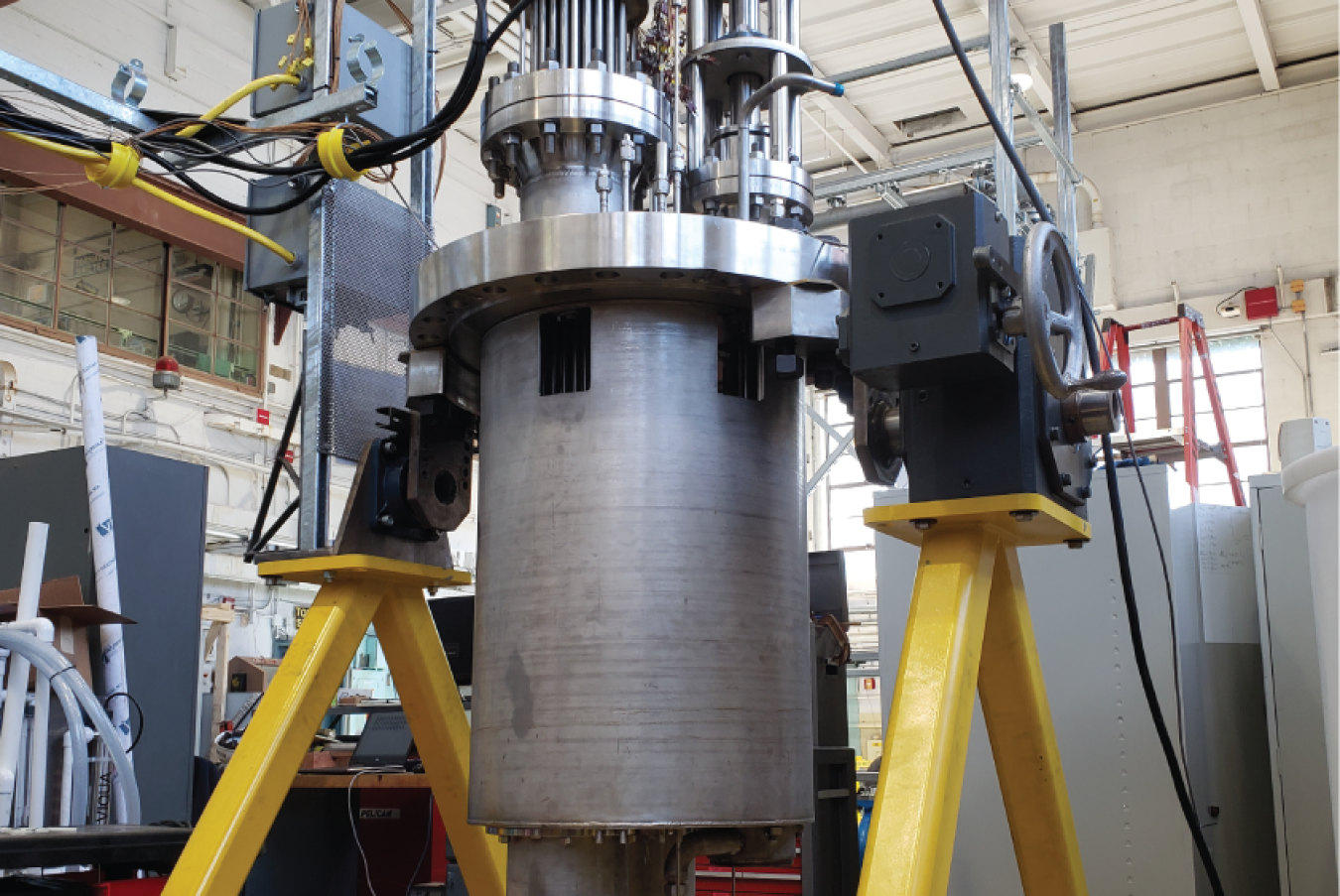Argonne National Laboratory recently added new capabilities to support testing of liquid metal fast reactors.
May 10, 2022

Argonne National Laboratory recently added new capabilities to support testing of liquid metal fast reactors. The Thermal Hydraulic Experimental Test Article (THETA) will provide high-resolution and high-quality data that can be used to develop computer codes to support the licensing of liquid-metal fast reactor designs. THETA is currently running its first test with Oklo Inc. as the company seeks to better understand the behavior of its fast reactor designs.
What is THETA?
THETA is a 450-liter pool-type sodium vessel installed inside Argonne’s Mechanisms Engineering Test Loop (METL) facility. THETA consists of a primary system, submerged in a liquid sodium pool, and a secondary system, located outside of the pool, that contains all the major components of a sodium-cooled fast reactor. It is equipped with fiber-optic temperature sensors that provide thousands of temperature measurement points across a specific flow field. The cutting-edge instrumentation allows tests to be performed in real-time with immediate feedback.
“The Thermal Hydraulic Experimental Test Article provides validation data for sodium nuclear reactor system codes as well as a test bed for liquid sodium components and sensors,” said Matthew Weathered, Principal METL Experimental Operations Engineer.
THETA will help researchers gain insight on how the coolant flows through the reactor under all operating conditions. THETA modeling will ultimately identify parameters that could enhance fundamental knowledge for more predicable safety margins, define higher operating temperatures, and provide more efficient power operation to support a wide range of advanced reactor designs.
Developing High-Quality Data
Oklo is the first developer to utilize THETA thanks to a voucher through the U.S. Department of Energy’s Gateway for Accelerated Innovation in Nuclear (GAIN) initiative. The GAIN Voucher aims to address the gap in high-quality experimental data related to fluid flow behavior and validation activities for liquid-metal reactors.
"THETA represents a unique opportunity where experimental and computational researchers can collaborate closely on requirements and design of experiments with a strong focus on the industry needs for advanced reactor licensing,” said Lander Ibarra, Principal Nuclear Engineer at Argonne National Laboratory.
The test performed by the Argonne and Oklo team will simulate various conditions, including unprotected loss of flow in a liquid-metal fast reactor. The data will provide validation for systems-level and high-fidelity analysis tools related to flow rate and natural circulation.
“Oklo, through the GAIN voucher, can submit direct feedback on the validation data and mitigate the risk reactor developers encounter when working with legacy measurements," Ibarra said.
This is expected to enhance the experimental and validation database for liquid-metal fast reactors as well as set a standard validation process for system-level codes. The reduced uncertainties associated with fluid flow behavior will improve economic competitiveness of U.S. advanced reactor designs and support licensing activities. Testing is expected to be complete by the end of 2022.
The GAIN initiative makes research facilities more accessible to the nuclear community in support of the commercialization of innovative nuclear technologies.
Learn more about the GAIN initiative HERE.

